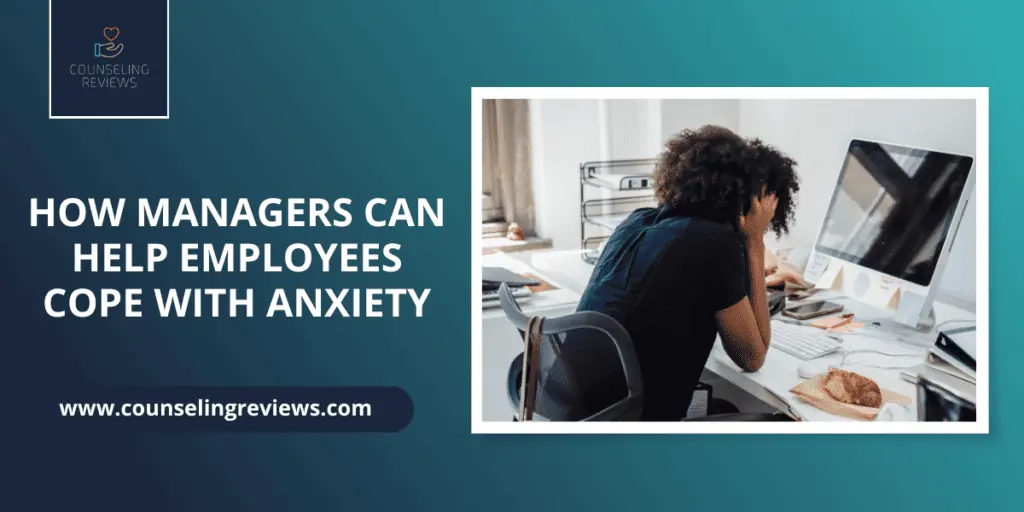Promoting mental health at work is one of the many duties of managers, especially when people are experiencing emotional distress at a higher frequency. According to a Gallup report, 44% of employees experienced high stress levels in 2021. Back in 2014, only 33% were stressed out.
Considering the effects of the bad economy and loss of jobs, mental health is likely to have plummeted in 2023. Anxiety can cause employees to disengage from work-related duties actively and may contribute to attrition. A recent Deloitte study revealed that 81% of executives and 68% of employees would choose a higher quality of well-being than career advancement.
These figures indicate that mental health is a serious concern among employees, and managers must do a lot to ensure employees are well taken care of. This ultimately has the effects of reducing attrition, improving productivity, and reducing stigma against mental illness.
In this article, let us look at how to ease anxiety at work.
How to reduce employees’ anxiety at work
A large percentage of the population experiences anxiety and mood disorders at any given point in time. Anxiety specifically can reduce performance quality and frequent absenteeism. Employees often attribute north anxiety and mood disorders to “stress,” although these are different conditions.

In addition to encouraging employees to seek professional care for their anxiety issues, managers can do a lot to support their employees at work.
- Create psychological safety: Managers are figures of authority who can augment or decrease employee stress levels. You must create a psychologically safe company culture where employees feel trusted, valued, and cared for.
- Do not micromanage: Managers often tend to micromanage their team members, which has an effect on stress levels building up. This invariably results in a decrease in performance, leading to an anxious and stressed-out cycle among employees. They may even engage in absenteeism when they can no longer cope.
- Build one-to-one relationships: A key managerial role is to be every team member’s professional confidante. You do not have to don the role of a therapist, but you can be actively empathic and attentive to your team members’ problems. Set aside a day in a week when you can speak to poor-performing employees about their emotional health. Urge them to seek online therapy if they cannot visit a psychologist in person.
- Create mental health awareness: Unfortunately, we live in a world where mental health issues are still stigmatized. Most employees hesitate to discuss their emotional problems with their managers, fearing being judged or appraised negatively. By showing that you care and actively conducting mental health awareness programs, you can generate conversations that eventually lead to tackling anxiety issues.
- Provide access to professional mental health care: Although you may not be able to do this in your capacity, you can urge your employees to speak to an online therapist who can teach them cognitive behavioral skills that help reduce anxiety. You can also request your higher-ups hire an in-house therapist to deal with employees’ emotional issues.
Tackle both stress and anxiety at the same time
It is important to remember that although many use the terms “stress” and “anxiety” interchangeably, they are different.

An external trigger usually induces stress. Work-related challenges, discrimination, being physically unwell, etc., can cause stress. Anxiety, on the other hand, is a tendency to worry persistently. An anxious person may find it difficult to relax and concentrate. Both stress and anxiety can be managed at work if you take a few additional steps to help your employees.
- Encourage frequent breaks: Employees often work continuously without taking a break in between. This reduces productivity and causes problems with attention and concentration. Ask them to look away from the screen every fifteen minutes and encourage them to take breaks every 25 minutes for five minutes. They can choose to walk during those five minutes.
- Conduct team outings: Team outings are an excellent way to help people who lack social skills. Social anxiety can interfere with several performance-oriented tasks, such as making presentations, attending meetings, etc. Team outings help employees to get to know each other and act as ice-breakers. This can reduce stress levels if not anxiety.
- Have exercise equipment available: Exercise is an evidence-based treatment for anxiety and depression. Physical activity encourages endorphins to be released, which are feel-good hormones. You can easily set up a small gym with a few dumbbells that can be used for workouts by employees. As this costs little money, staff can fundraise for a rudimentary gym.
- Make the workplace more cheerful: Many studies reveal that cubicles can create feelings of dissociation and disorientation among staff. Try to enliven the atmosphere by encouraging employees to paste posters, photos or decorate their desks how they want to.
- Create a buddy system: Most importantly, employees feel more confident and comfortable with their peers when discussing emotional issues. Hence, a buddy system can help your team members to share problems. The assigned buddy can encourage the paired employee to seek professional help when things get complicated.
Online therapy is accessible to all employees.
Although you can try several techniques to help your staff feel better, real anxiety and stress disorders are best attended to by actual therapists. Therapists such as clinical psychologists, psychotherapists, licensed social workers, and others use cognitive behavior therapy to address anxiety and its underlying problems.
As a manager, you are one of the key individuals in your employees’ lives, and you will probably be able to identify when something is amiss sooner than others based on work performance, social interaction, and motivation levels.
Even if your staff works remotely or your company cannot afford in-house psychologists, online solutions can help make treatment accessible. When you sense something is wrong, seek professional help for your staff, and you will have performed your duties impressively.





